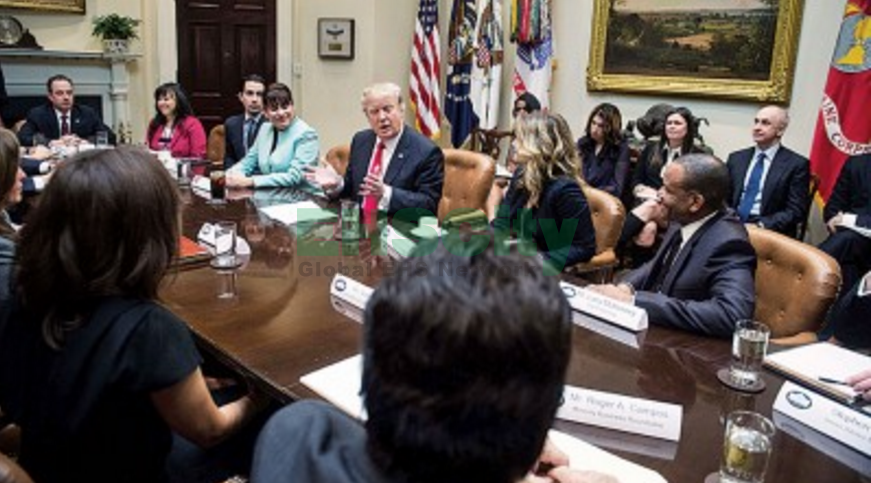石油公司CEO必须身兼首席安全官
Just when the Deepwater Horizon stopped leaking oil into the Gulf, costing BP $8 billion in direct cost and $70 billion in lost market capitalization so far, another platform owned by another company caught fire and exploded. It reminded us again of the immense oil and gas industry's immense vulnerability. Chief executives throughout the oil and gas industry are now asking their operational leadership for assurance that similar accidents will never happen in their organizations. That assurance can't be given with integrity and confidence, because the industry has lost command over of its greatest source of vulnerability--its organizational culture and leadership.
To prevent another catastrophe like Deepwater Horizon, C-suite leaders must move rapidly to create a culture in which safety is valued as the foundation for every other dimension of performance. Operational integrity depends on having safety define the culture.
To begin this process, industry leaders should develop plans that include at least the following three steps, and they should do so in the next 90 days:
1. Acknowledge that CEOs and their boards rarely receive good information on what takes place at the operations level within their companies. To get at the real picture, CEOs need to cut through several layers of management, talk to mid-level managers, and audit their companies' safety procedures. In the financial audit world, it has become popular to talk about understanding the "tone in the middle." A chief executive who doesn't know the tone on the platforms and shop floors simply doesn't know the company's exposure to catastrophe.
2. Realize that internal records are frequently unreliable. Operational integrity and safety data should be scrutinized to determine their accuracy. The frequency of convenient lapses in safety protocols reported in the case of the Deepwater Horizon is deplorable. In many cases, the results of these reviews will be shocking.
3. As top safety officer, chief executives must communicate throughout their organizations this core cultural value: Sticking to rigorous safety systems and procedures won't cost money; it will save lives and make money. Acting otherwise is unacceptable. When this message is clear and credible, colleagues will not hesitate to call one another on errors in safety practice, and news of near misses will pass up the chain of command without impedance.
Related Stories
CSR in Annual Reports: 7 Conflicting Trends
CSR in Annual Reports: 7 Conflicting Trends
Five Notable African Philanthropists
Two Things Any CEO Can Do To Take Control of Health Care Costs
Investor giant CalPERS wrestles with real-life challenge of ESG
Related VideosJames O'Keefe's Next TargetsWhy Product Endorsements Must Be AuthenticBuying Equities Amid Gov't Debt2012 Presidential Republican ContendersU.S. Officials Probe Whether Banks Colluded on Libor
StoriesVideosRate This Story
Your Rating Overall Rating Reader Comments
Krause is not saying that the CEO must literally be the safety officer. He is saying that safety requires a CEO who assumes responsibility for the organization's safety performance just as he or she
Read All Comments (7)Post a CommentBoth Exxon and NASA faced similar urgencies after the wreck of the Exxon Valdez and the failure of the space shuttle Columbia. In the latter case, the investigation panel found the cause to be "as much about organizational failure as technical failure." To bring about the change that was needed, the senior leaders of these two complex organizations--Sean O'Keefe at NASA and Lee Raymond at Exxon--launched cultures of caution by taking personal accountability for safety in their organizations. Paul O'Neill did the same at Alcoa ( AA - news - people ) during his remarkable tenure as CEO there.
When CEOs demand absolute integrity, it doesn't mean they think they can avoid all risk. It means they want to know that state-of-the-art operations integrity programs, for both safety and reliability, are in place, that company leaders are doing what they need to do to make them effective, and that exposures to catastrophe are being identified and managed effectively.
Like it or not, in the oil and gas industry and in other industries with catastrophic potential, the CEO must take on the primary leadership role in safety. Without this commitment, federal regulations will be imposed. The likelihood of future incidents will increase. Little progress will be made. Rapid, profound change in any industry inherently involves the CEO. In the new normal, oil and gas CEOs can no longer be effective leaders if they don't lead with safety.
Thomas R. Krause is chairman of the board of BST, a safety performance consulting firm based in Ojai, Calif., whose clients include the major oil companies, NASA, hundreds of manufacturers worldwide, and patient safety-focused health care organizations.
为了防止再次出现“深水地平线”号类似的灾难,高管们必须快速行动起来,创建一个将安全视为所有绩效基础的企业文化。在“深水地平线”号钻井平台终于停止向墨西哥湾倾吐原油,这一事故已导致英国石油公司直接经济损失80亿美元,市值损失700亿美元——就在此时,另一家公司所有的另一个平台又起火爆炸了。它再次提醒了我们巨大石油天然气行业的巨大脆弱性。石油天然气行业的首席执行官们正在要求他们的营运领导人确保类似的意外事故将永远不会发生。没人能作出诚实无欺的保证,因为这个行业已经失去了对其最大脆弱性来源的控制——其企业文化和领导力。
为了防止再次出现“深水地平线”号类似的灾难,高管们必须快速行动起来,创建一个将安全视为所有绩效基础的企业文化。作业完善性有赖于企业文化中的安全定义。
想要开始创建这样一种企业文化,企业领导人应该制定包括至少以下三个步骤的计划,且必须在90天内完成:
1. 要承认首席执行官和董事会很少能了解企业内部营运层面上正在发生些什么。想要真正进行了解实情,首席执行官们必须跳过几个管理层级,直接和中层经理人对话,并审核公司的安全程序。在财务审计中,谈论如何理解“来自中层的声音”已经变得十分流行。不了解这些平台以及销售市场情况的首席执行官不可能知道公司所可能面临的灾难。
2. 要意识到内部记录常常是不可靠的。作业完善性和安全数据应该经过审核,以确定它们的准确性。“深水地平线”号案例中所记录下的失误频率令人扼腕。在许多情况下,这些回顾评估的结果都令人震惊。
3. 作为首席安全官的CEO们必须在整个企业中传达这样的核心价值观:坚持执行严格的安全系统和程序不会产生成本,反而能拯救生命并赚取利润。反其道而行之是不可接受的。这一信息被清晰无误地传达之后,员工在实施安全措施时,将毫不犹豫地指出他人的错误,且险些酿成事故的讯息将毫无阻力地上传至管理层。
埃克森美孚和美国国家航空航天局(NASA)分别在Exxon Valdez原油泄漏事故和哥伦比亚号太空飞船失事之后面临着同样的紧急局面。在NASA的事件中,调查小组发现,“组织性失误所占比重和技术性失误一样多。”为了推行必要的变化,这两家复杂机构的高级领导人——NASA的肖恩·奥基夫(Sean O'Keefe)和埃克森美孚的李·雷蒙德(Lee Raymond)——通过各自在企业内部承担起安全的个人责任,推行起了审慎的企业安全文化。美铝公司(Alcoa)的保罗·奥尼尔(Paul O'Neill)在担任首席执行官期间也采取了相同的措施。
CEO们要求绝对的完善性,但这并不意味着他们认为可以避免所有的风险。这意味着,他们想要了解最新的作业完善性项目——目的是安全性和可靠性双方面的——已经实行,且公司领导人正在努力使之有效运行、潜在灾难已经知晓且得到有效管理。
无论CEO们是否喜欢,在石油天然气行业以及其他存在潜在灾难的行业,他们必须承担起主要的安全领导责任。如果没有这一承诺,将采取联邦法律方式进行监管。未来此类意外事故发生的可能性将有所增加。进步将非常之少。任何行业中,快速、深刻的变化都必须有赖于首席执行官的参与。以全新的标准来看,石油天然气行业的CEO们如果不能领导企业安全,就不再称得上是高效的领导人。
托马斯·克劳斯(Thomas R. Krause)系位于加利福尼亚州奥哈伊的安全绩效咨询公司BST的董事会主席。该公司客户包括各大石油公司、NASA、全球数百家制造企业,以及专注于病患安全的医疗保健机构。
【福布斯中文网】本文网址:http://www.forbeschina.com/business/review/201009/0004048_2.shtml

